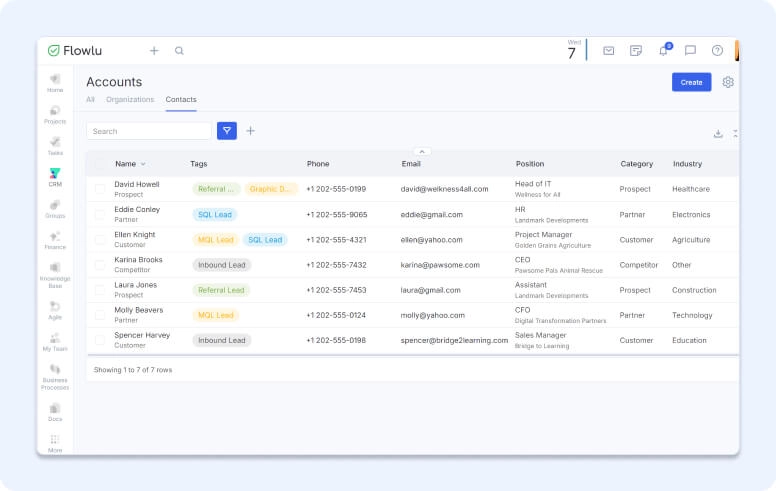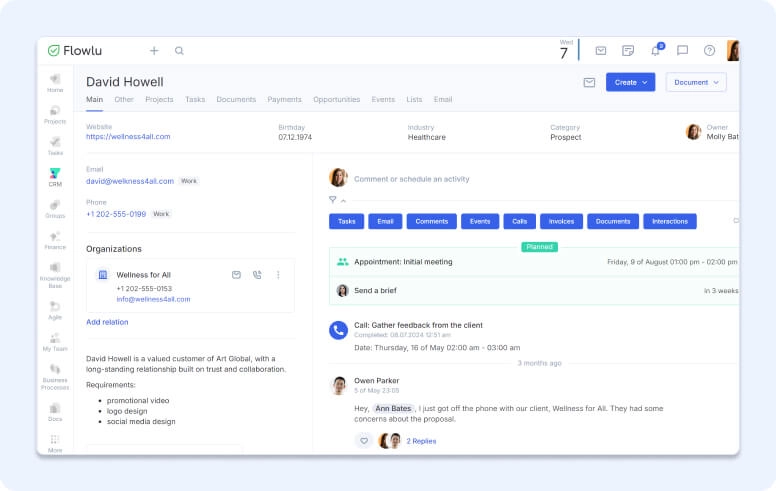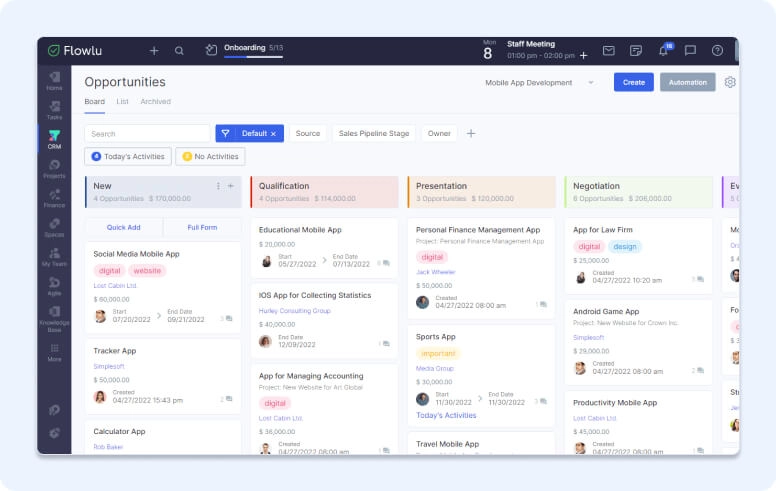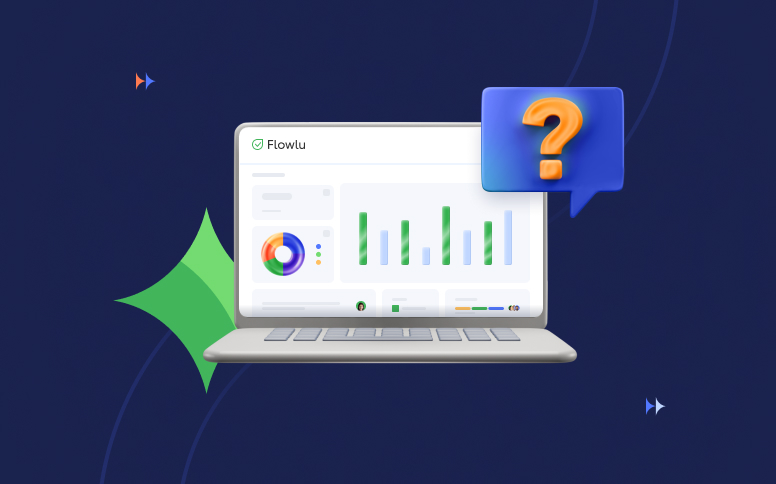Boosting Sales Through CRM Data: Transforming Insights into Revenue
- Google Spreadsheet v/s Notion v/s CRM
- Keep your big data organized and well-structured
- Boost your data insights with Power BI
- High-fidelity data for business analytics
- Better quality data to profile your customers
- Identify customer segments based on the order frequency, volume
- Never miss an opportunity for repeat purchases
- Guide sales operations based on data
- Conclusion
When it comes to on-time practical data, CRM could be an ideal tool. It can help you manage the sales as a solution to give better directions to the organization's sales machine for higher margins. Let’s discuss how CRM could be an ideal maneuvering tool for better insights to discover opportunities and capitalize on them.
Google Spreadsheet v/s Notion v/s CRM
First off, why consider a CRM? Spreadsheets are still a strong competitor to CRM software. The primary advantage of using a spreadsheet over CRM software is that it is free.
Any e-commerce expert could tell you that handling sales and customer management can quickly become complicated and overwhelming. Here, trying to manage product sales alone can easily get out of hand.
Fortunately, there are CRM solutions that have already identified and effectively streamlined this issue, providing a seamless solution.
Although Notion is touted as a replacement for CRM and project management tools, there are clear limitations when it comes to overall functionality. While it allows individuals to manage daily tasks using templates, add-ons, and plugins, It lacks effectiveness in data collection for business insights. You may also struggle to set up custom workflows in handling cross-functional team dynamics. Additionally, it fails to capture the urgency and opportunities of each task.
In short, when it comes to data management for small and medium-sized businesses, both Notion and spreadsheets can fall woefully short due to their limitations. Now, let’s explore the benefits of CRM for data management.
Keep your big data organized and well-structured
Most medium and small organizations prefer to simplify their daily operations, viewing data as a by-product of their overall operations. This is especially true when it comes to sales activities.
Without proactive management of sales data, you’ll only capture basic metrics like the number of orders and order amounts. This limited data merely reflects core sales activities.
While a restaurant might track individual orders and product movement, having easy access to daily data on fast-moving items could reveal shifts in customer behavior and preferences. By spotting these trends, the businesses could refine the menu to highlight these popular items, enhancing their offering and meeting customer demand more effectively.
To implement this system, the business requires a CRM that can quickly access daily data on popular and slow-moving items. Additionally, it needs a flexible method for retrieving this information for any specific date.
In the case of larger businesses, this data could have much more fields that capture the data to visualize your sales and profits. In these cases, you would need a CRM that would integrate with your existing 3rd party systems. This CRM system would collect all the data that are involved in your daily operations. Flowlu integrates seamlessly with third-party systems, making it an ideal choice for large businesses looking to streamline their data collection.
Automating your data collection could be an ideal way to avoid this efficiency loss without sacrificing the quality of your data. In turn, this would help you create the foundations of your big data that allows much more options to generate insights from your data.
Ideally, a CRM consolidates disparate data into a single, centralized repository, streamlining management and eliminating the complexities associated with multiple systems.Later, you can use multiple different tools like tableau and Power BI to generate insights from this data.
Boost your data insights with Power BI
First we saw the power of CRM to collect and organize data. Next, we can review how to transform this data into actionable insights.
Several organizations use a dedicated BI tool to visualize data and generate reports from multiple/various software tools that are used across an organization. By integrating CRM data with third-party sources, we can seamlessly push this information into Power BI for enhanced analysis and visualization. By viewing such consolidated data on a single dashboard, we can always receive a clear picture of what’s happening in the organization. In order for this to work, relevant data from multiple business tools need to be exported and pushed into the BI tool for generating reports.
Whether you're using Power BI, Tableau or another data analysis tool, the quality of your insights will largely depend on the quality of your input data. By having a CRM as your data management platform, you can streamline your data collection and management processes, ensuring that the insights you derive are accurate and actionable.
As the organization expands, the sales data accumulates too. A CRM could help your data be organized during this time.
High-fidelity data for business analytics
Business analytics helps you discover and leverage new opportunities in the market. It also helps you leverage inefficiencies that may have been costing you money.
A business analyst would look into the different products sold in each market, segment, or store. Based on this analysis, the analyst can create competitive metrics to compare one store against another, or one product category against another.
With high-quality data, it's possible to determine which stores or categories are performing better or worse. For example, the analyst may find that one store is consistently outperforming another store in certain product categories.
For this analysis to be effective, businesses must maintain their data with high fidelity. This means:
-
Covering all relevant data touchpoints
-
Streamlining data to a single platform
-
Arranging data in clear comparison tables that can be easily pulled into a spreadsheet or excel
To accomplish this, you should streamline your data management, ideally by using a CRM platform. If data is managed inconsistently, such as in Excel, there may be gaps for certain stores or categories. This could lead to faulty analysis and insights, resulting in poor business decisions and outputs.
Better quality data to profile your customers
In 2025, not utilizing customer profiles could mean you're missing out on crucial insights about your customers. When it comes to customer profiling, there are two main ways to build your customer profile: comprehensive data-based customer profiling and ad-hoc customer profiling.
Ad hoc customer profiling relies on broad, less detailed information. This could include certain basic attributes based on available data such as age with a particular segment. This might miss important attributes relevant to your target customers. This approach can be imprecise and may overlook crucial details.
Instead, most businesses rely on data-based customer profiling. This helps you achieve the required level of precision required for modern customer targeting. Using a Customer Relationship Management (CRM) platform, you can gather detailed attributes about your customers - including their buying patterns, age, location, and job. This information helps create a more accurate and detailed customer profile.
Having a CRM as a centralized hub for customer data, you would be able to significantly append and enhance the details in your customer profile. By including key fields like profession, age, and gender, you can easily create customer segments and build different target customer profiles for your business. With the collected data, you can also review the purchasing tendencies and previous purchases made by the customer. In turn, this will allow you to tailor your strategies accordingly for your specific target buyer. Build detailed customer profiles with CRMs like Flowlu or Insightly and gain deeper insights into your target audience.
A detailed data based customer-profile allows you to gain better insights that are closely aligned with your business needs. In turn, this improves your sales and marketing processes.
By having different customer profiles, it's possible to segment customers into distinct groups based on shared characteristics. This helps businesses to tailor marketing efforts and messages more effectively. With this approach, businesses can send targeted messages, sending only relevant offers to each customer segment. This also helps avoid bombarding customers with multiple offers, preventing them from feeling overwhelmed and losing interest.
For example, you can start sending only relevant messages to each specific segment. You’ll also be able to pick specific marketing channel to reach each customer segment.
Identify customer segments based on the order frequency, volume
To get the most value from each customer, focus on boosting both the frequency and volume of their purchases. With CRM data, you can quickly identify customer segments where there is an uptick in purchase frequency or purchase amount.
This helps you further tailor your marketing campaigns to reach and target these customer segments more effectively. For example, you can start sending special offers for their previous purchases.
The CRM also helps you create a list of your higher value customers. Now, you can send them a special discount coupon which isn’t available to regular customers as a sign of appreciation.
Never miss an opportunity for repeat purchases
If you are an ecommerce business, you might be already optimizing for the LTV of your customer. If you are in the B2B section, you might be still optimizing for the repeat purchases.
In this case, it will require you to accurately understand which product may require repeat purchases. This could include products like protein powder, which could be reasonably predicted to have repeat purchases in a predicted time period. With the CRM system, you can set a reminder for this particular time period and reach out to the customers to initiate the purchase.
In the case of a B2B company, this could be an upsell or product renewal that may require you to reach out to the customer.
In all these cases, the CRM platform can manage your data and give you intimation at the right time to cover the repeat purchases. Optimize for repeat purchases and improve customer retention with Flowlu’s intelligent CRM notifications using workflow automation.
Guide sales operations based on data
The CRM data can help alleviate the anxiety associated with the sales process. For example, you might need to know specific details about a customer before reaching out to them. In many cases, this data can be fragmented, requiring the sales representative to spend time collecting various pieces of information. With a CRM, you can have a comprehensive customer profile for each individual.
This system can manage all the information related to the customer, making it easier and more efficient to handle your customer data.
This data can be used to enhance your sales funnel by collecting information from various sales activities. By analyzing this data, you can identify the most common objections encountered during the sales process. With this insight, you can collaboratively develop a more effective strategy to address and overcome these objections.
Conclusion
Corporate employees are spending over 40% of their time on manual, repetitive tasks, with email, data collection, and data entry activities.
A flexible CRM system can be embedded into various parts of your operations and workflow. This integration can lead to higher efficiency. The CRM can become an integral part of your operations, acting as a system to collect, manage, and analyze your data.
With effective integrations, you can also pull your CRM data into various analytics and reporting platforms, making it easier to retrieve valuable insights for your business in a timely manner. Integrate Flowlu into your workflow to enhance efficiency and gain actionable insights effortlessly!
Customer Relationship Management (CRM) is a technology used to manage and analyze customer interactions and data throughout the customer lifecycle. The goal is to improve business relationships, streamline processes, and increase profitability.
While spreadsheets are free and widely used, they quickly become cumbersome for managing complex sales and customer data. A CRM provides advanced data management, automated workflows, and real-time insights, making it more efficient for growing businesses.
A CRM system consolidates sales data into a centralized repository, allowing for better organization, easy access, and detailed analysis. This helps in tracking sales activities, identifying trends, and making informed decisions to drive sales growth.















